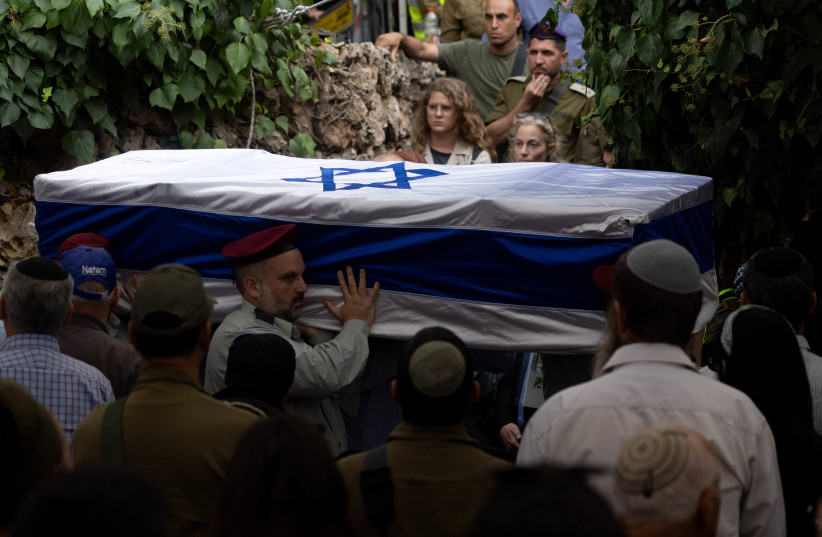Wives and mothers take on their own battle at home
Since October 7, hundreds of thousands of IDF soldiers and reservists have been called up to serve the State of Israel.
They rolled in, lines of cars at a standstill for kilometers at the entrance to army bases in the North and South, leaving everything behind to fight the terrorist organization Hamas after its brutal cross-border attack that left 1,200 Israelis and civilians dead and 240 taken hostage to Gaza.
As they drove to their bases, they drove away from their homes, their girlfriends, boyfriends, husbands, wives, mothers, fathers, and children. They left everything most valuable to them, only able to fight for their safety through their service.
Those families who stayed at home were left with their battle, though one that has not been on the cover of newspapers or prime-time news.
As the war rages on, there persists some semblance of normalcy that the country has managed to reach. But any house with a soldier or reservist knows that for them, that simply is not the case. Instead, they are weighed down with worry, fretting over their close one who has been called away.
The burden the country is shouldering
Beyond the heavy emotional toll of having a family member in Gaza or on the Lebanon border, the day-to-day lives of these families are stifling at best. Mothers across the country are describing an acute exhaustion experienced when alone with their children, having to juggle their schedules alongside those of the kids’ school hours and after-school activities.

The Reservists’ Wives Forum, a massive community of the partners of reservists, has been very helpful in providing resources for the mothers and wives who have stayed home and are struggling to keep up with the demands of their day-to-day lives. This includes legal aid for receiving funds from the government, registration for help with childcare, and support with meals.
The Forum released a survey earlier this week, which asked reservists’ wives what they were struggling with the most; a whopping 72% of those surveyed said they had experienced a reduction in work hours due to their husbands being away at war.
HaOgen – Anchor for Families of Reserve Soldiers has also been an extremely helpful initiative, providing essential support to the families of reserve soldiers, whether it be meals, housework, childcare, or pet care.
Families who have made aliyah, in particular, are suffering from this, as they do not have the structure necessary to ask for assistance with the children, housework, or cooking.
“I know no other space these days but my office and my house,” one mother, who preferred to remain anonymous, told The Jerusalem Post. “It’s drop off the kid; go to the office; try to function while worrying nonstop for my husband, who is on the front lines; sprint to make it on time to pick up my kid from kindergarten; take him home and care for him until his bedtime; and sign back on to work until I pass out… And it’s not like I have my parents in the country to help me out.”
While the social initiatives have been incredibly inspiring, many of these families feel abandoned by the government.
“The meaning of [reservists’] recruitment is the cancellation of the routine division of roles in every home and a transition to a reality in which we alone are responsible for the operation of the household and raising the children,” the Forum said in a letter addressed earlier this month to Finance Minister Bezalel Smotrich. “We, the wives of the reservists, are severely harmed and do not receive adequate recognition, response, or compensation due to the absence of our spouses from home.”
Many of these families have become suddenly dependent on assistance they never thought they would need. There are women with depression or children who don’t have the full emotional support they need during this fragile period in time.
That is the state of our country right now: Brave soldiers on the front lines, while the home front is manned by soldiers holding the fort, commanding the (tiny) troops, and somehow keeping it together.
Both forces unto themselves must be saluted because they are the columns that are holding Israel up high and strong. It is the government’s responsibility to compensate these families properly, and it is the public’s responsibility to recognize all the fronts on which the fight for Israel is ensuing today.





Comments are closed.